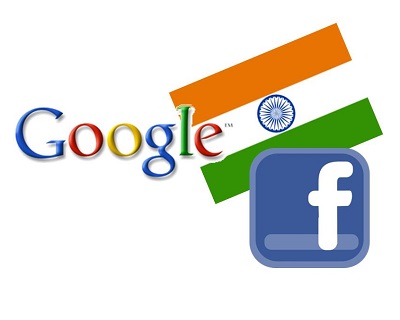InMobi, the global advertising giant, is working on giving the Silicon Valley companies a run for their money.
Eight years ago, InMobi was founded as an advertising company, which has since placed a considerable focus on the mobile ad ecosystem and has grown into the third largest player in an extremely intense sector of the marketing industry.
At the moment, only Google and Facebook are ahead of InMobi when it comes to the mobile ad space.
The company was first started by three graduates of the Indian Institute of Technology, Kanpur, a prestigious postsecondary education institution. It is located in Bangalore, India and has managed to take off at a rate that has been explosive enough to pass everyone along the way except Google and Facebook. According to the chief executive of mobile advertising at InMobi, Naveen Tewari, “I am a very proud Indian and I want to see our country succeed.”
Among the goals of the founders of the company was to become major mobile ad players from within India.
 Tewari stated that “I thought if I could do something from here that can be successful, maybe I’ll have a small role in creating great companies out of India that can compete with the iconic companies in Silicon Valley.”
Tewari stated that “I thought if I could do something from here that can be successful, maybe I’ll have a small role in creating great companies out of India that can compete with the iconic companies in Silicon Valley.”
Today, there are 24 different InMobi offices located in 17 countries around the world. It is the employer of over 900 people. In 2014, it was behind the posting of approximately 720 mobile advertisements on the smartphones of over one billion mobile device users. The goal of the company is to deliver mobile ads to 2.5 billion people per day. It aims to achieve this goal within the next few years.
Much of the growth of this mobile advertising company has been credited to the massive penetration of smartphones and tablets worldwide. Enders Analysis director of digital media, Ian Maude, pointed out that “InMobi creates audience networks for advertisers to reach through mobile devices.”
Therefore, companies and brands hire app makers and other forms of digital publishers in order to be able to use proper mobile ad strategies to connect with their audiences over their handsets.
The company has released an official statement explaining that it was sorry for the privacy threat it caused.
A mobile advertising company from China has now issued an apology for having disseminated code that made it possible for hundreds of iOS based apps to access the personal data of their users.
This dissemination of code was in direct violation of the policy of the Apple App Store.
Guangzhou Youmi Mobile Technology Co., the mobile advertising company in question, stated that they were offering their “sincere apologies” after Apple had expressed that the firm’s offerings would all be taken down from the App Store. They were taken down because they were discovered to have been collecting and extracting private user data such as device identification, email addresses and other information.
So far, there have been 256 apps that were taken down as they were in violation of the mobile advertising policy.
 Researchers at SourceDNA, an American security company, stated that they had identified 256 different mobile apps that were involved in the practice of collecting personal data in a way that was against the policy of the App Store. Those applications were all created through the use of a software development kit (SDK) that was made by Guangzhou Youmi Mobile Technology.
Researchers at SourceDNA, an American security company, stated that they had identified 256 different mobile apps that were involved in the practice of collecting personal data in a way that was against the policy of the App Store. Those applications were all created through the use of a software development kit (SDK) that was made by Guangzhou Youmi Mobile Technology.
A statement was released by Apple in which the company explained that the collection of personal data in that way is in direct violation of the privacy and security guidelines at Apple. It also said that any new apps that used Youmi’s SDK would be rejected from now onward if they are ever submitted to the App Store.
Youmi has also said that it is now working with Apple in order to be able to bring resolution to this situation. The mobile advertising company’s statement of apology explained that “For those products that have been temporarily taken down, we will provide reasonable compensation once this matter has been properly resolved.” This makes it look as though reimbursements may not be issued right away, but that when the circumstances are better under control, some compensation will occur for customers who paid for the products.
 Tewari stated that “I thought if I could do something from here that can be successful, maybe I’ll have a small role in creating great companies out of India that can compete with the iconic companies in Silicon Valley.”
Tewari stated that “I thought if I could do something from here that can be successful, maybe I’ll have a small role in creating great companies out of India that can compete with the iconic companies in Silicon Valley.”
 Researchers at SourceDNA, an American security company, stated that they had identified 256 different mobile apps that were involved in the practice of collecting personal data in a way that was against the policy of the App Store. Those applications were all created through the use of a software development kit (SDK) that was made by Guangzhou Youmi
Researchers at SourceDNA, an American security company, stated that they had identified 256 different mobile apps that were involved in the practice of collecting personal data in a way that was against the policy of the App Store. Those applications were all created through the use of a software development kit (SDK) that was made by Guangzhou Youmi 